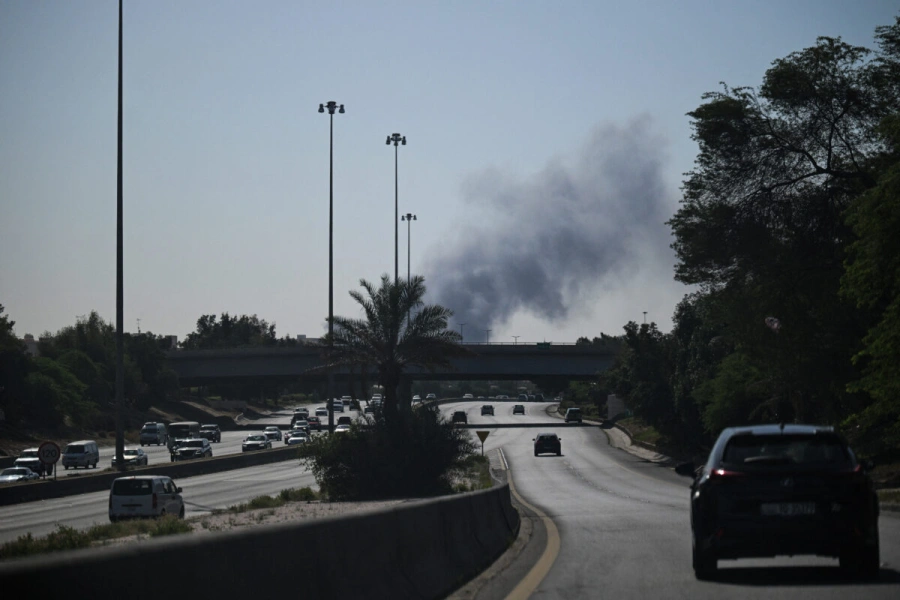KATHMANDU, Jan 28: Nepali students in Wuhan —the epicenter of the coronavirus epidemic in China— say they are very concerned about getting infected even as the entire city is in lockdown and mobility of people is heavily restricted.
While complaining that they have not received any help from the Embassy of Nepal in Beijing, many students said they are likely to face an acute shortage of food as the supermarkets, that opened after a gap of several days, have run out of daily essentials and many of them are closed again already.
Dr Gaurab Pokharel, a PhD student in surgery at Tongji Medical College, Huazhong University of Science & Technology (HUST), said although Nepalis in Wuhan are safe they are worried about the deteriorating situation. “We Nepalis in Wuhan wish our embassy and the Nepal government would take necessary steps to evacuate us from here,” he said.
Neliya Shakya, student of mechanical engineering at HUST, said there has been a food scarcity and face masks are not available in the market. “I want to return to Nepal but for the past two days all transport services have remained closed,” said Shakya. The university has 25 Nepali students.
Yubaraj Thapa, a bachelor’s level geology student at the China University of Geosciences, said the embassy in Beijing should do something to help before things get worse. “We are worried because the situation is getting worse by the day. We have nothing to do except stay indoors, cook and follow the news,” he said.
Thapa also said the supermarkets are running out of many essentials. “It would be great if our embassy can arrange to send us home,” he added.
As the situation worsens, the students are confused what to do next. “Although they have created a WeChat group and have remained in touch, we have not received any help from the embassy,” said Silu Shrestha, a doctoral student in psychology at Wuhan University.
China's Wuhan, where the coronavirus emerged, begins to lift it...

The university has distributed free masks and started providing free meals three times a day so that students do not go outside the university premises. They also disinfect the apartments every day.
Many students in Wuhan said the government in Kathmandu should take necessary measures to screen Chinese, Nepalis and all others who enter Nepal from China or via China.
Embassy sets up special cell
Amid concerns over the safety of Nepali nationals in China, the Nepal embassy has created a special cell to deal with issues related to the coronavirus outbreak
“The special cell will receive calls from Nepalis, offer advice and assistance, collect reports on the actual situation of Nepalis in China and coordinate with Chinese health authorities,” said Deputy Chief of Mission at the embassy, Sushil Lamsal.
According to the embassy, there are around 120 Nepalis in Wuhan. The embassy has been keeping Kathmandu posted about the situation of Nepalis in China, especially in Wuhan.
“We are in constant communication with the health authorities of China to monitor the situation and assess the risks. We do not have any report of Nepali students affected by this virus,” he informed.
Universities advising students to go home
Many universities in China have suggested to international students to return to their home countries as far as possible. Although they have not made this mandatory, many universities have published notices advising students to return home, while also suggesting students who are currently on vacation not to return to China until the situation improves.
Namuna Dallakoti, a bachelor’s level nursing student at Capital Medical University in Beijing, said the university issued a notice on Monday recommending to international students to return to their own countries and wait for further notice to come back for the new semester or internship. The notice states that students staying behind are not allowed to leave the international school premises. Students have also been suggested to stock up on food and water.
Universities including Harbin Institute of Technology, Communication University of China and Peking University have suggested to international students to go home, though this is not mandatory.
However, Nepalis in China said returning to Nepal might be risky for their families as there are chances that they might be carriers of the coronavirus.
Amar Shah, a third year medical student at Peking University, said he wanted to come back but the airport is the most vulnerable area for infections. “Though the university has recommended we go home, I think my family and society at large might be infected if I happen to be a virus carrier. So I’ve decided to stay put unless things really get bad,” he said.
Dormitories, buses and metros measuring temperatures
Most university dormitories have banned outsiders from entering the building. The Communication University of China has banned even students from one dormitory entering another. All the universities in Wuhan have made it mandatory to measure one’s body temperature at the gate of the dormitory before entering each time.
Simran Bam, a medical student at Sun Yat-sen University in Guangzhou said bus drivers and metro rail staff measure your temperature before entering a bus or metro train. “If we have a fever we need to go immediately to hospital. Not only that we have been asked to keep isolated, avoid crowds and to wear face masks mandatorily,” she said.
Educational institutes to close until further notice
With the number of coronavirus cases in China increasing and even spreading outside, the Chinese government has decided to close all educational institutions until further notice. Its Ministry of Education issued a notice for schools and educational institutes to wait until further announcements to restart the spring semester.
Beijing Municipal Commission of Education on Sunday announced that all schools in Beijing from kindergarten to colleges will indefinitely delay reopening after the Chinese New Year break. Shanghai also announced that middle and elementary schools and kindergartens would remain closed until February 17.
Many universities like Peking University, Chinese Academy of Sciences, Capital Medical University, Communication University of China, Harbin University of Technology, Zhejiang University in Hangzhou and all universities in Wuhan have postponed spring semester classes.
Issuing a notice on Sunday, the Office of the Leading Group for Epidemic Prevention and Control of Peking University informed students that the university has decided to postpone the opening of spring semester classes. The university has asked students not to return until they are notified of the opening date.
Avinab Marahatta, a doctoral student in computer system architecture at the Chinese Academy of Sciences, said his university has issued a notice asking all students, faculty and other staff not to return to Beijing until February 14.





































